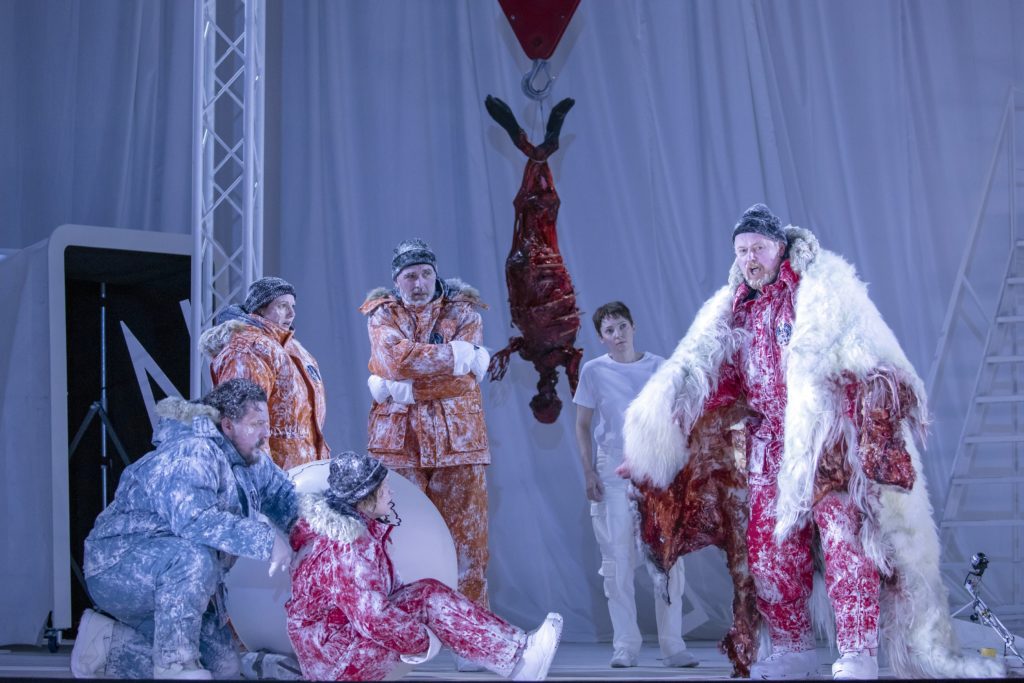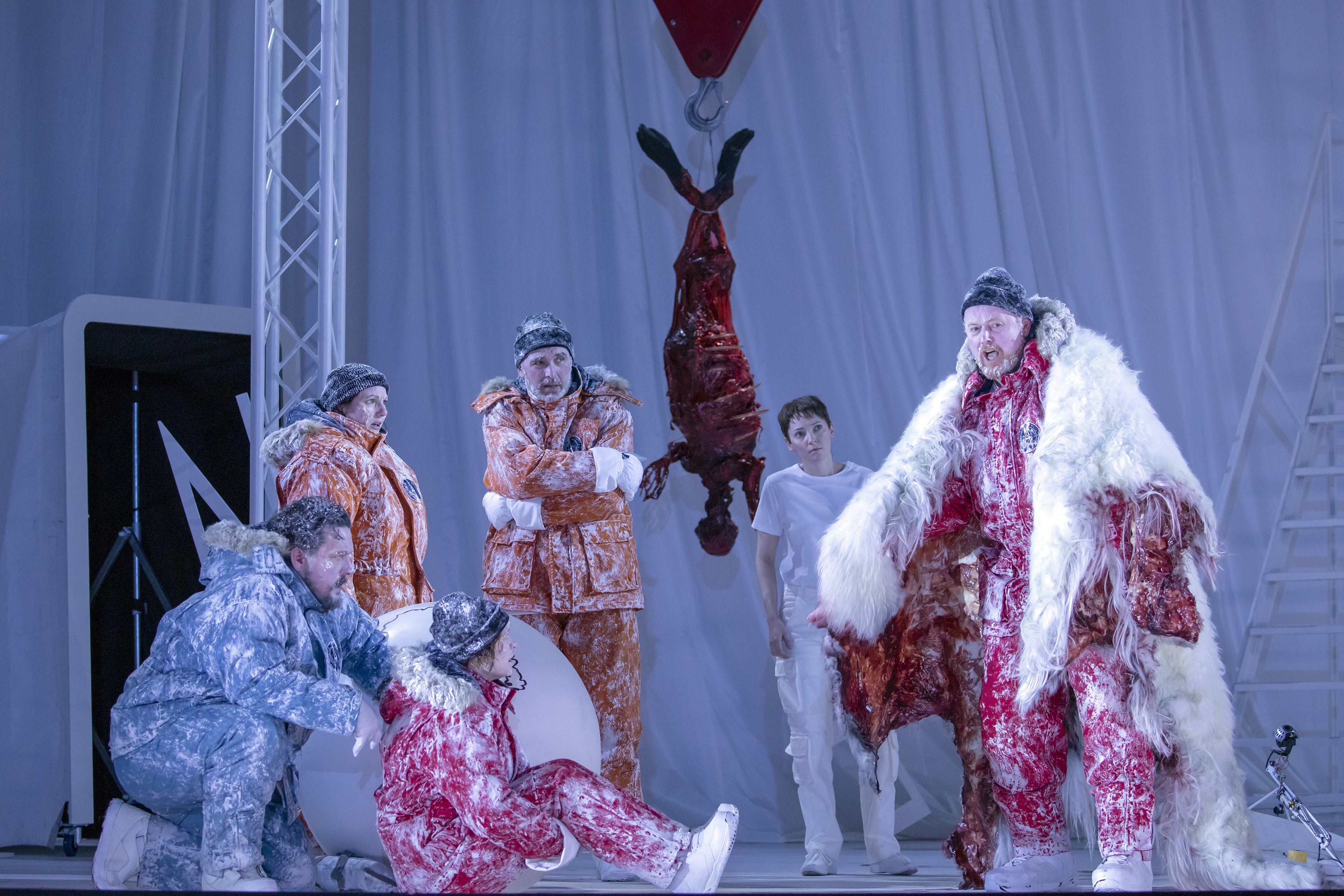
Anthropocene
There was a tangible buzz in the air for the world premiere of this opera in Glasgow's Theatre Royal. With music by Stuart MacRae and libretto by author Louise Welsh, the story is set in the frozen wilderness of Greenland, where a scientific expedition comes to grief when plummeting temperatures cause the exploration ship King's Anthropocene to be locked into a frozen sea.
The ice-bound characters descend into lethal rivalry as their different agendas and egos clash, and the discovery of a body frozen in the ice that miraculously is reanimated provides additional tension and fear.
The vocal characterisation of the androgynous ice-girl know simply as Ice, contrasts with that of the other characters: her soprano voice is high and her melodies are often richly decorated to highlight her ethereal, fragile, and volatile nature.
The music is unashamedly modern, with echoes reminiscent of Stravinsky's Rite of Spring. In particular there are effective musical characterisations through the growl of the ships engines struggling to free them from the ice, and unusual, almost unidentifiable percussion sounds that underscore the tense, otherworldly atmosphere of the piece.
The libretto also gifts the different characters different styles of address, with Paul Whelan's Captain staccato, short utterances using a limited range of notes contrasting with the brash, expansive and sometimes bombastic confidence of Mark Le Brocq's Harry King. The entire ensemble perform impeccably, and in some moments where three or more voices are singing, there is a superb tonal depth and subtlety of phrasing.
There is an unsettling, constantly edgy, almost a film-score feel to the orchestration, and contracts in tonality and high woodwind and strings quartertones, especially towards the climax, add a further layer of ennui to the story as it unfolds.
A sparse set, overwhelmingly white is at first offset by the bright clothing of the ships' crew, with different colours subtly delineating the different roles and allegiances of the characters. But as the story progresses, the colours fade, first with ice-covered clothes and bodies, augmented by survival blankets and animal skins, and then in the last act, all melding into the background draped in arctic white. And then comes blood: copious amounts of it smeared across the stage and all of the characters as a second horrific murder takes place.
The colour of ice
The staging and lighting are hugely effective, especially in the sequence where a storm of strobing white intensity combines with the rapid removal of all props and colour from the scene to leave everyone scattered across an icy white backdrop, absorbed into the frozen landscape. There is a simple magic in how this all appears, and it's as if the cold and ice has become an additional character, dragging in and brutalising all of the players on the stage.
There are subtle, rather than sledge-hammer messages here about the vanity and lust for fame of many of the characters, and the underlying man-made crisis of climate change. There is an evolution in the character of Ice, superbly sung by Jennifer France, who begins with a vocabulary that is akin at first to animal howling, but she then becomes more lucid and self aware as the ice and isolation grip everyone. She is almost inevitably turned on as an outsider and a threat as the cabin fever increases in intensity, and then with her stories about the sacrifice of blood that set her family free, the ship's crew realise that another sacrifice is needed if they are to be freed of their icy prison.
In contrast to most classical opera, it is not women who are killed off: Miles is the one who is sacrificed after his murder of Vasco, and the shockingly visible red gore that attends both characters is starkly evident against the white, white backdrops. The flayed and bloody body of a seal hung up by its tail in Act II is echoed in macabre fashion with the incarnadine, arterial slaughter and hoisting aloft up of Miles' body in Act III.
In summary: this work will give you the shivers: the moral degeneration and cold violence works with the sets and unnerving music to leave you deeply unsettled, and asking questions about much of what you have seen - and indeed asking questions of yourself. This is musically deft, both chilling and electrifying, and is a thought-provoking, memorable and visually stunning production. See it.
4 stars ★★★★
Theatre Royal Glasgow
24 • 26 Jan 7.15pm
King’s Theatre, Edinburgh
31 Jan • 2 Feb 7.15pm
Hackney Empire, London
7 • 9 Feb 7.30pm


